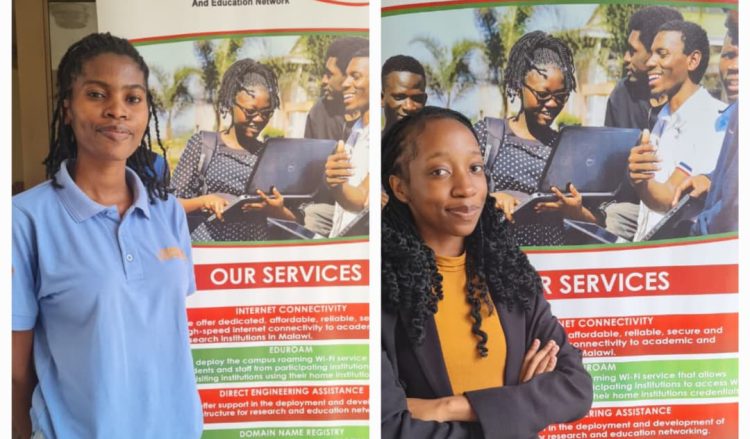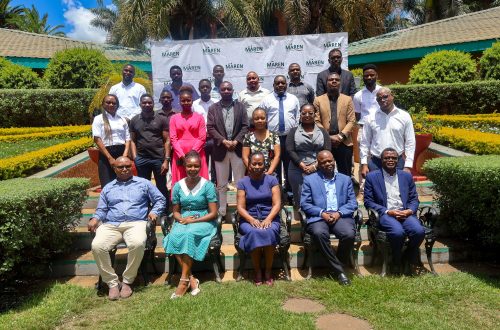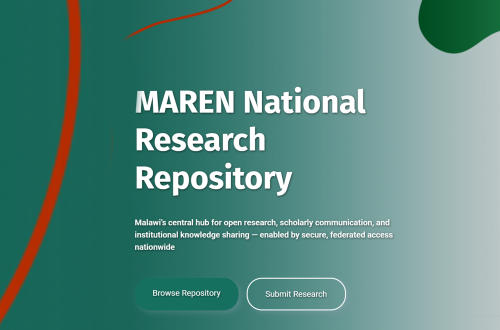
The Malawi Research and Education Network (MAREN) is proud to announce that two of its staff members, Grace Gausi and Joyce Ntawali, have had their papers accepted for presentation at the prestigious UbuntuNet Connect 2025 Conference, organised by the UbuntuNet Alliance. The conference will take place in Harare, Zimbabwe, and will gather researchers, innovators, and policy-makers from across the continent. Their research explores two vital areas for Africa’s digital and academic future: strengthening AI readiness through better data infrastructure, and improving disaster preparedness for Research and Education Networks (RENs).
Grace’s paper, “Unlocking Africa’s Research Data for AI Through Fair-Aligned Data Infrastructure”, focuses on how Africa can build robust, ethical, and connected data systems to enable homegrown AI. Having followed UbuntuNet Connect for several years, she saw the 2025 theme as the perfect platform to share her vision. “My work at MAREN sits right at the intersection of infrastructure, data, and innovation,” she explained. “I knew it was the perfect platform to share ideas on unlocking African research data for AI.”
Her preparation journey was not without challenges. The topic touches multiple layers—from technical systems like iRODS and high-performance computing to governance, ethics, and continental strategy. “Boiling all of that down into a short abstract that still captured the urgency and opportunity was tough,” she said. She overcame this by refining multiple drafts, seeking feedback from colleagues, and distilling her message to its essence: “Without local data, there is no local AI.” For Grace, participating in the conference is “an opportunity to position [her]self and MAREN as active contributors in shaping Africa’s data and AI strategy” while forging connections with experts across the continent.
Joyce’s research, “Measuring the Readiness of Research and Education Networks (RENs) for Disaster Occurrences in Sub-Saharan Africa”, addresses a different but equally urgent issue—the ability of RENs to remain functional during crises. “What inspired me was the opportunity to step out of my comfort zone and discover what more I could achieve personally and professionally,” she said. “Research isn’t just about theory but about addressing real-world problems, like ensuring RENs are prepared for disasters, which can impact education and research continuity.”
Like Grace, Joyce faced challenges early on. “The first challenge was finding the ideal research topic and shaping it into a clear and concise abstract,” she recalled. Support from colleagues helped her refine her work to meet submission standards. She believes the experience will “broaden [her] perspective on how research and collaboration work in practice” and open doors to discussions with experts who share similar interests.
Both presenters agree that preparation, passion, and clarity are key to success. Joyce advises aspiring participants to “start preparing early and don’t be afraid to seek guidance from others.” Grace adds: “Choose a topic you are genuinely passionate about… and connect your idea to a bigger picture.”
As they prepare for UbuntuNet Connect 2025, both expressed gratitude for the opportunity, with their expertise and commitment, Grace and Joyce are composed to make a strong impact at UbuntuNet Connect 2025, representing both MAREN and Malawi on a continental stage.
Subscribe To Our Newsletter
Get updates and learn from Us
More To Explore

MAREN Engages Central Region Universities as ISOC-Funded Network Resilience Project Enters Second Phase
When the internet goes down on a university campus, learning, research, and critical operations which

MAREN Launches National Repository to Elevate Malawian Research to Global Platforms
For many Malawian researchers, the challenge has never been the absence of valuable work—but rather
